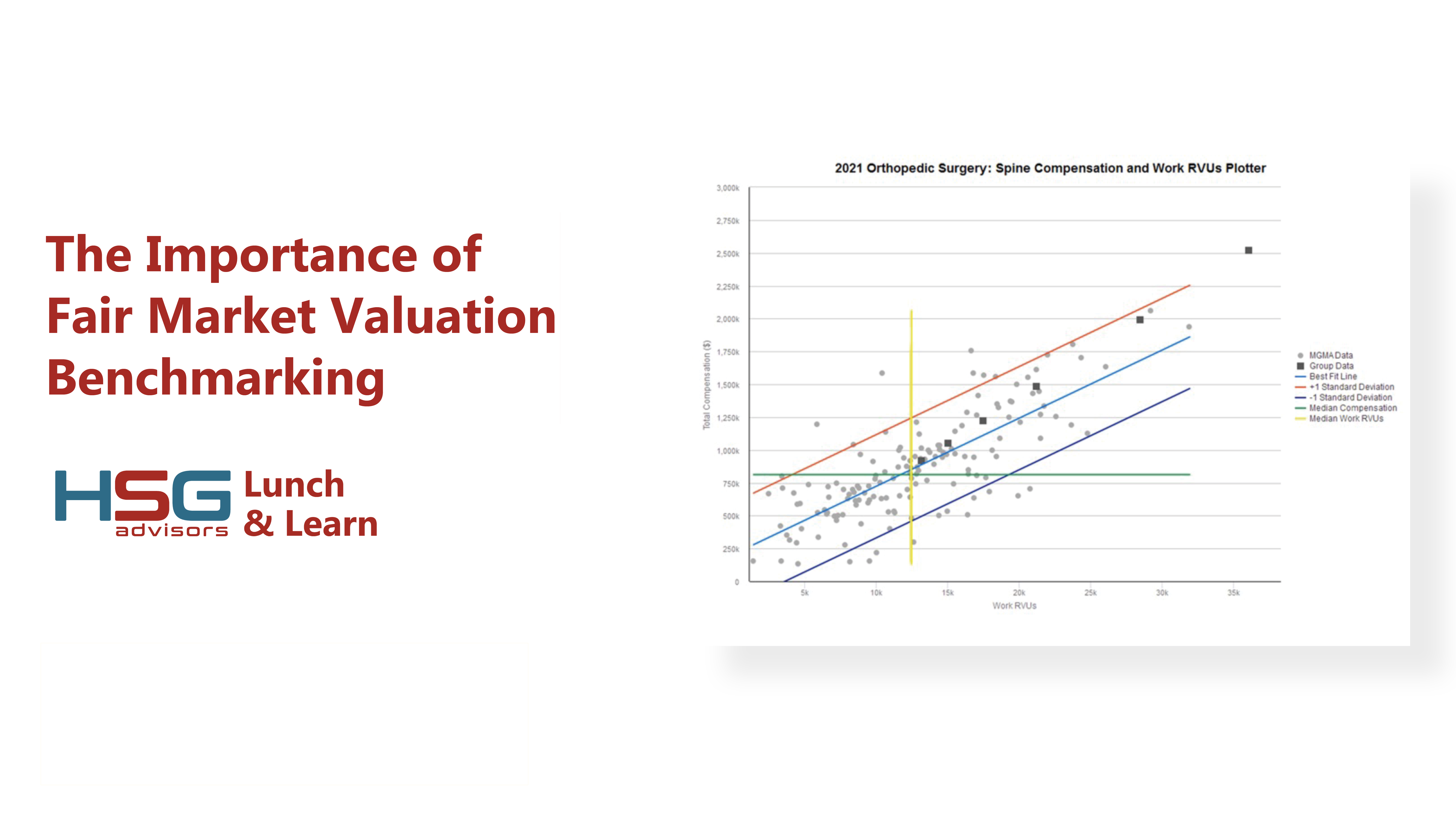Provider Compensation Strategy
Overview
Employed provider compensation continues to trend higher, while reimbursement does not. HSG partners with health systems to develop compensation philosophy and specialty-specific models that are financially sustainable yet promote retention in a competitive environment.
How We Work
Employed Provider Compensation Model Design is among the most critical aspects to achieving true alignment with physicians and advanced practice professionals (APPs). In today’s environment, many organizations find themselves working to standardize the array of agreements they have signed over the last 15 years as the network has grown; other health systems are seeking to transition their models to incorporate more focus on outcomes and clinical practice models. Whatever the goal, Employed Provider Compensation Model Design cannot be done in a vacuum- it must be inexorably linked to a health system’s organizational objectives, its culture, and its operational and financial objectives, as well as incorporate risk contracting tenets to ensuring regulatory compliance.
HSG’s Compensation Leadership team brings together significant experience and thought leadership in the area of Employed Provider Networks and Employed Provider Compensation. This allows HSG to understand your individual health system and employed network’s culture and structure, and anticipate practicing clinician perspectives and nuances, such as:
- APP Provider Mix and Utilization and Performance by Specialty and by Practice
- Compensation Plan Incentives for Physicians and APPs in both Individual and Team-Based Care Compensation Models
- APP Administrative and Collegial Onboarding
- APP Participation and Integration into Practice, Service Line and Network Leadership Structures
Discover, Develop, and Implement
HSG’s “Discovery, Design, and Implementation” Provider Compensation Strategy development structure brings internal stakeholders up to a consistent level of understanding regarding current state of provider compensation dynamics, evaluates the potential approaches to the evolution of organizational Provider Compensation philosophy, structure and incentives, and evaluates the financial impact of shifting models.
HSG’s proposed compensation models focus on being:
- Market competitive
- Attractive to talent, and
- Progressive in nature to reward workforce retention
Models include implementation and management programs or tools for timely, error resistant management and reporting and communication to leadership and individual providers. HSG’s consultant-led process ensures providers and administrative leadership build consensus on an organizational philosophy that runs throughout the organization, with warranted specialty-specific variation. This type of collaborative involvement ensures that when final recommended compensation philosophy and models are produced, there will be organizational awareness and buy-in, and that the model will be successfully implemented.
Additional Analysis and Consulting
HSG leverages its proprietary set of market and provider network data analytics to help our clients understand the current state of the market, build effective strategic planning initiatives, monitor performance against defined objectives over time, and reassess and reprioritize on an ongoing basis.
HSG Compensation and Compliance
No matter the size of organization, provider compensation is a complicated issue, encompassing issues of strategic alignment, financial sustainability, and regulatory compliance, all of which demand a coordinated, comprehensive approach from health systems and their employed networks.
Fair Market Valuation and Commercial Reasonableness
Rising provider compensation combined with increased scrutiny necessitates that a health system have a strong compliance program in place for adherence to Fair-Market-Value. HSG’s FMV experts partner with health systems to guide compliance efforts and to develop Fair Market Value and Commercial Reasonableness opinions supporting a health system’s compensation strategy.
Hospital-Based Subsidy Arrangements
As resources constrain and expenses rise, health systems are experiencing explosive growth in their subsidies for hospital-based specialties. HSG works with health systems to evaluate the operational and contractual cause for subsidies and evaluate and implement action plans to reduce subsidies while maintaining patient care delivery.
Related Resources
-
HSG Core Services
HSG partners with health systems to transform their approach to markets, services, and providers for improved growth and operational and financial sustainability.



